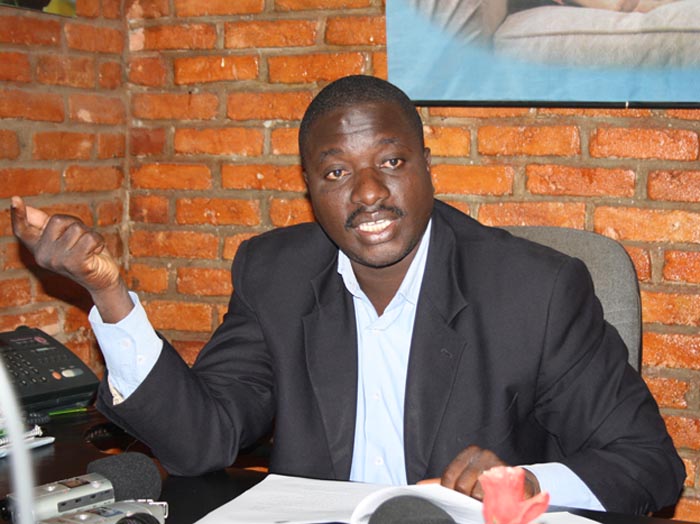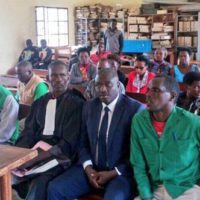During a plenary session of the European Parliament on 18 September in Strasbourg, the case of Pierre Claver Mbonimpa, the chairman of Aprodh, was discussed. PARCEM worries about what could happen.-By Diane Uwimana

Faustin Ndikumana: “Things go from bad to worse in our country. If our Republic President does not care about this, the country takes serious risks.” ©Iwacu
A resolution on the situation of human rights in Burundi was discussed and adopted, with special emphasis on the case of Pierre Claver Mbonimpa, the chairman of the association defending the human rights (Aprodh). The case was submitted by the Group of the ACP: African, Caribbean and Pacific countries. MEPs firmly condemned the detention of Pierre Claver Mbonimpa and requested his immediate release.
During a press conference, Faustin Ndikumana, chairman of Burundian NGO PARCEM, worries about the decision of removing Burundi from the Cotonou Agreement that could be taken by the European Community. “The European Community, including Germany, Belgium, the Netherlands and France, is still supporting our country,” Faustin Ndikumana notes.
He goes on saying that if the European community has a problem with a country , some repercussions could follow. “If we analyse, we can find many domains where those countries invest”, adds Ndikumana. The association warns President, Pierre Nkurunziza to take this issue seriously. “Things go from bad to worse in our country. If our Republic President does not care for this, the country takes serious risks because the case of Pierre Claver Mbonimpa is an empty file”, points out Ndikumana.
It is worth mentioning that the European Community and the Group of African, Caribbean and Pacific States (ACP) have affirmed their Commitment to work together towards the achievement of the objectives of poverty eradication, sustainable development and the gradual integration of the ACP countries into the world economy and asserted their resolve to make, through their cooperation, a significant contribution to the economic, social and cultural development of the ACP States and to the greater well-being of their population, helping them facing the challenges of globalisation and strengthening the ACP-EU Partnership in the effort to give the process of globalisation a stronger social dimension.
Moreover, the countries acknowledge that a political environment guaranteeing peace, security and stability, respect for human rights, democratic principles, the rule of law and good governance is part and parcel of long term development; acknowledging that responsibility for establishing such an environment rests primarily with the countries concerned.

















 IWACU Open Data
IWACU Open Data

